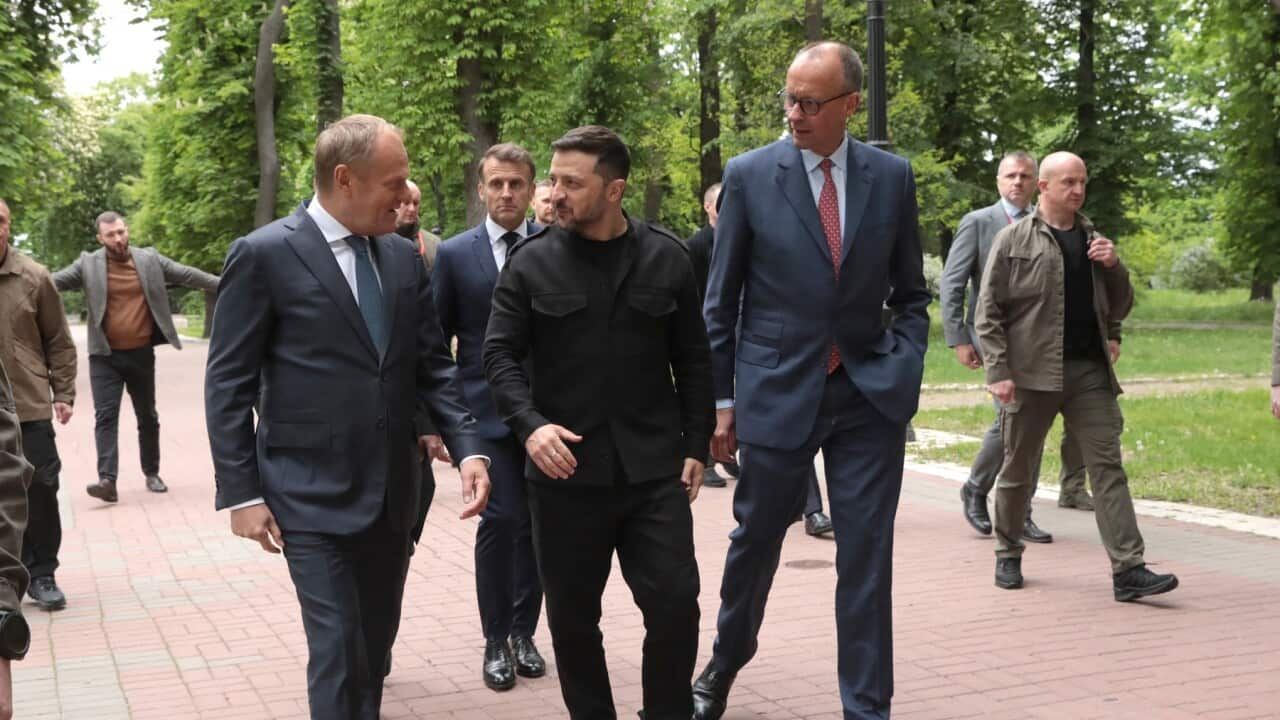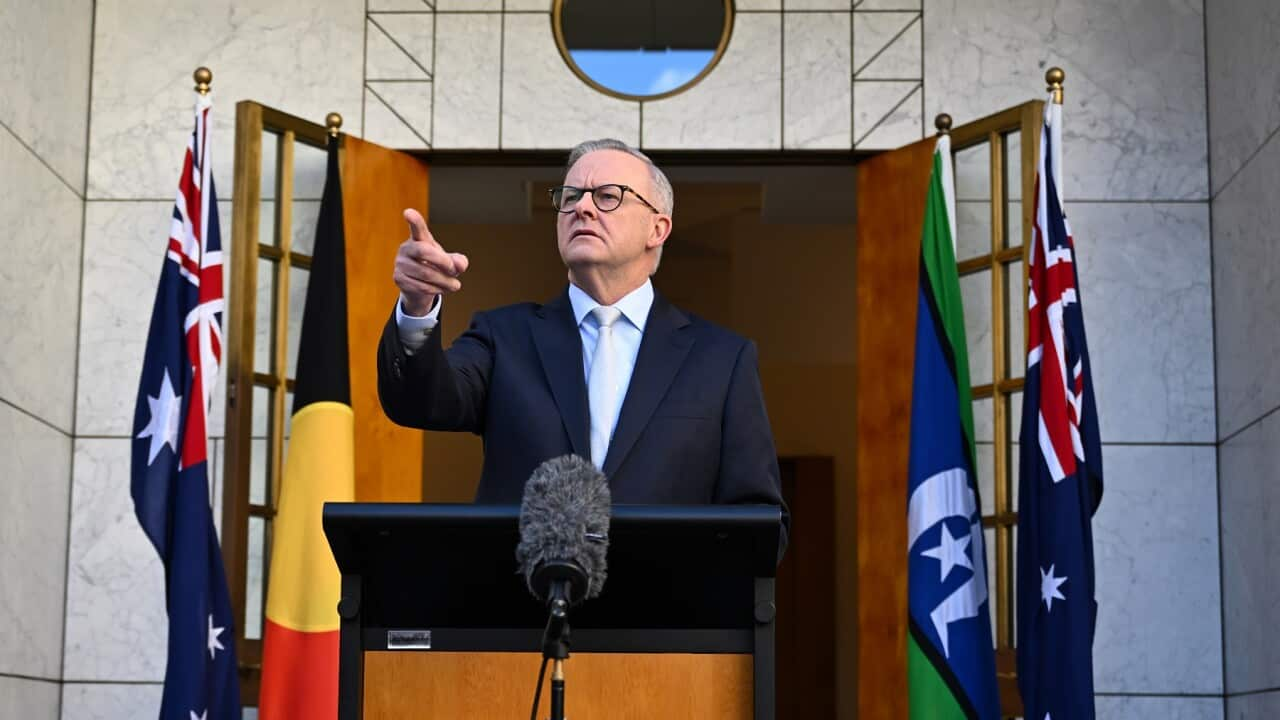TRANSCRIPT:
Three months after a Royal Commission into the Suicide of Defence and Veteran soldiers released its findings, the federal government has given its official response.
Prime Minister Anthony Albanese says it's the nation's duty to ensure the wellbeing of its troops.
"Lest we forget is Australia's most solemn promise. A promise to remember the fallen, honour their sacrifice and to care for their loved ones left behind. It's also a reminder of the duty that we owe. To all those who return, to ensure those who have served Australia have access to the support and services they need and they deserve."
The Commission made 122 recommendations in their report, and the Prime Minister says almost all of these have been accepted.
"Well, quite clearly, we need to do better. And what this Royal Commission did, and that is why it has proven to be so worthwhile, is to allow for a proper examination, some of which was through public hearings, some of which was through private evidence being given. We now have a clear direction being made as a result of the recommendations of the Royal Commission but also of the government's response."
Among those accepted recommendations is a decision to launch an inquiry into sexual violence in the military - and a policy of mandatory discharge for Australian Defence Force members convicted of sexual and related offences like sexual harassment, intimate image abuse, and stalking.
And the reforms go even further, with those convictions to now follow personnel into their civilian lives too.
Under the current rules, when a person is convicted through the military justice system it's not always shared with police forces across the country.
Veterans Affairs Minister Matt Keogh says Defence is working with the federal government's law enforcement agency and the Attorney-General's Department to feed those records into the national police reference system, with plans for this to happen from early 2025.
"We're not just noting recommendations to park them. We're noting recommendations to do the further work that's necessary to make sure that we can make the very important changes that are outlined in these recommendations as well. We see the importance of all these matters that have been raised in these recommendations."
And the recommendations go even further.
The government has accepted that victim-survivors of sexual assault will not be posted with their perpetrators during their military career.
And it says anonymised data of sexual misconduct should also be published each year, along with their outcomes.
Military lawyer Glenn Kolomeitz appeared for clients at the royal commission and is now running for the senate for the Jacqui Lambie Network.
He says these changes might help address a troubling culture within the ranks.
"For a long time it was a cultural norm, not just necessarily turning a blind eye to it, but certainly by not appropriately punishing or appropriately addressing the issue that enables perpetrators. It's this lack of any real deterrent - any general or specific deterrent - that enables many units across the ADF."
The government has declined to accept a proposal to raise compensation to veterans who are permanently impaired during military exercises, something the veteran community has been calling for.
The Prime Minister says that doesn't mean the government doesn't understand the cost to those who carry lifetime scars due to their service.
"The service differential is a long-standing feature of Australia's support for veterans. It's been there a long time. And while all veterans can access assistance for all conditions linked to their service through the Department of Veteran's Affairs, service differential supports higher levels of compensation for injuries or illness that occurs in operational-type service. We regard that feature as being important and that is why we've made the decision to maintain it."
But while there's no change on that score, Defence Minister Richard Marles says there will be an immediate establishment of a statutory body to oversee the necessary reforms in Defence and Veterans affairs.
He says an interim head will be set up before the body can be officially legislated next September.
"We're going beyond the recommendation of the Royal Commission's report and we are establishing this body right now. And so today, as the Prime Minister has announced, we are establishing the Defence and Veterans Service Commission which will begin its work immediately. And that will take place as we move into next year and then go through the process of legislating this body."
One of the key tasks for the new agency will be to drive down the rate of veteran suicides.
The Royal Commission established that among those who served between 1985 and 2001, just over two thousand [[2,007]] had taken their own lives.
The rate of suicide has been estimated to be at an average of three current or former military members per fortnight.
Matt Keogh has described those figures as a national tragedy - and so has Julie-Ann Finney, who has spent years advocating for veterans after her son committed suicide.
"We need to hear the voices of veterans."
The Opposition says it regards the government's response to the Royal Commission report as a step in the right direction.
Opposition Spokesperson for Defence Andrew Hastie says he supports the establishment of a new body, but wants to wait and see how the reforms will be implemented.
He says the government's approach so far has left a lot to be desired.
"I think it comes down to political leadership, and it’s up to the Albanese government to demonstrate they can lead, so far I think they've failed to lead the Defence Force well. Which is why we want to see an election, because we think we're better placed under Peter Dutton to lead the Australian Defence Force and the Veteran community and give them the leadership that they deserve."













